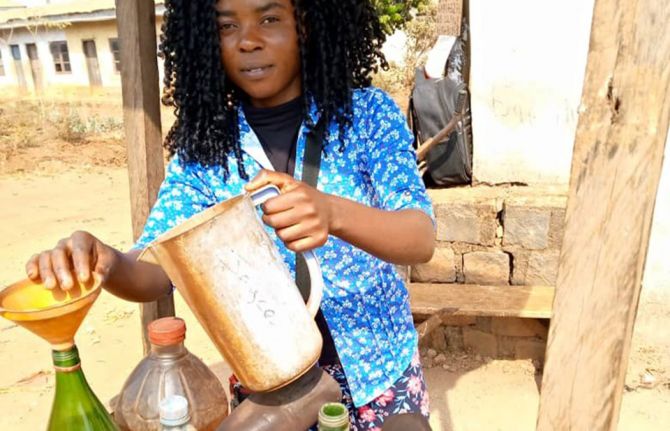

Feature Story
Social protection systems addressing inequalities
09 December 2021
09 December 2021 09 December 2021The COVID-19 pandemic has widened inequalities, claimed lives and disrupted HIV and tuberculosis (TB) services. It has affected the most vulnerable, including people living with, at risk of and affected by HIV. By reducing inequalities, social protection facilitates the uptake of HIV, TB and other essential health services. It improves adherence to HIV and TB treatment, reduces HIV risk and mitigates the social and economic impacts of HIV and COVID-19.
In 2015, all countries pledged to reduce inequalities within and between countries as part of the Sustainable Development Goals. This pledge is reinforced by the Global AIDS Strategy 2021–2026: End Inequalities, End AIDS and the 2021 United Nations Political Declaration on AIDS. Governments must promote inclusive social and economic growth and access to social protection for vulnerable people, including key populations, people living with HIV and others.
A satellite session at the 2021 International Conference on AIDS and STIs in Africa showcased UNAIDS’ call to action on reducing inequalities in support of key populations, children, adolescents and people living with HIV accessing social protection benefits.
Quotes
“Inclusive social protection systems are required to end inequalities and help end AIDS by ensuring that 45% of people living with, at risk of and affected by HIV access social protection benefits.”
“HIV and COVID-19 provide a double threat for children and adolescents. Robust social protection systems that have the capacity to support food security, reduce poverty and increase schooling, mental health and access to sexual and reproductive health services are required.”
“COVID-19 also strikes at gender inequalities. More women living with HIV are dying from COVID-19 than men living with HIV because of wealth disparities. Social protection is an essential response to COVID-19 and HIV. Through social protection, Eswatini has provided a range of programmes, including cash incentives.”
“Those most at risk of infection or death from infectious diseases like HIV, tuberculosis and malaria, and now COVID-19, are people who face a range of human rights and gender-related barriers to accessing health services—gay men and other men who have sex with men, people who use drugs, transgender people, people in prisons and other closed settings, adolescent girls and women, displaced people and refugees. To address inequalities and ensure no one is left behind, we must support countries to focus on the poorest and the most marginalized communities.”



